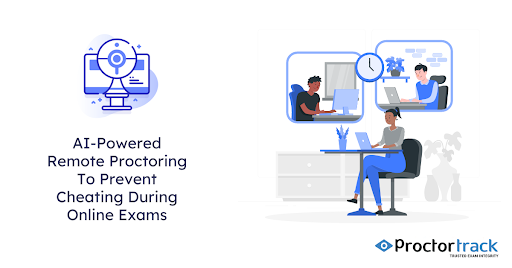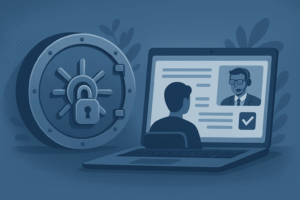As more and more exams are happening online, the issue of cheating has become a major concern. In recent years, there have been several instances of students using ChatGPT 4v, an AI language model developed by OpenAI, to cheat in their online exams. In this blog post, we will discuss the problem of cheating in online exams and explore some effective ways to prevent it.
The Problem of Cheating on Online Exams

The rise of online exams has brought many benefits, such as increased flexibility, accessibility, and convenience. However, it has also given rise to new forms of cheating. Students have found ways to use the internet, AI tools, and other resources to gain an unfair advantage in their exams. One such tool that has gained popularity among students is Chat GPT.
Chat GPT is a state-of-the-art AI language model developed by OpenAI. It can understand and generate human-like text, making it a powerful tool for natural language processing tasks. Students have been using ChatGPT 4 to create answers to exam questions in real time, giving them an unfair advantage over their peers.
Preventing Cheating in Online Examinations
To prevent cheating in online exams, educators and institutions need to adopt a multi-pronged approach involving technology, policies, and procedures. Here are some effective ways to prevent cheating in online exams:
Use Online Proctoring Software

One of the most effective ways to prevent cheating in online examination Apps is to use proctoring software. Remote Proctoring App such as Proctortrack can monitor students’ behavior during the exam and flag any suspicious activity. Proctortrack uses a combination of machine learning algorithms and human proctors to ensure the integrity of the exam. It can detect cheating behaviors, such as using ChatGPT 4 and other AI tools, as well as plagiarism and unauthorized device use.
Set Clear Guidelines and Policies
In addition to using proctoring software, it is important to set clear guidelines and policies for online exams. Educators should clearly outline what is and is not allowed during the exam, such as using external resources and devices. Students must get clear information about the consequences of cheating, which may include disciplinary action, loss of credit, and even expulsion.
Randomize Questions and Answers
Another effective way to prevent cheating in online exams is to randomize questions and answers. Each student receives different questions and answers choices, making it difficult for students to share solutions. Randomization also makes it more difficult for students to use ChatGPT 4 to generate real-time answers.
Use Question Banks
Question banks are collections of questions that are useful for creating exams. Educators can use question banks to create a large pool of questions to randomize exams. This makes it more difficult for students to cheat since each exam will be unique. Additionally, question banks are also useful for creating different versions of an exam, further reducing the likelihood of cheating.
Monitor Students' Internet Activity
Lastly, educators can monitor students’ internet activity during exams to prevent cheating. This is possible using software that tracks students’ web browsing and detects suspicious activity. For example, if a student searches for exam answers on Google or visits unauthorized websites, the software can alert the proctor.
Conclusion
Cheating in online exams is a serious problem that can undermine the integrity of the exam and devalue the efforts of honest students. Educators and institutions must take proactive steps to prevent cheating, including proctoring software, clear guidelines and policies, randomized questions and answers, question banks, and internet activity monitoring. We can ensure the best possible exam integrity by adopting a multi-pronged approach.











